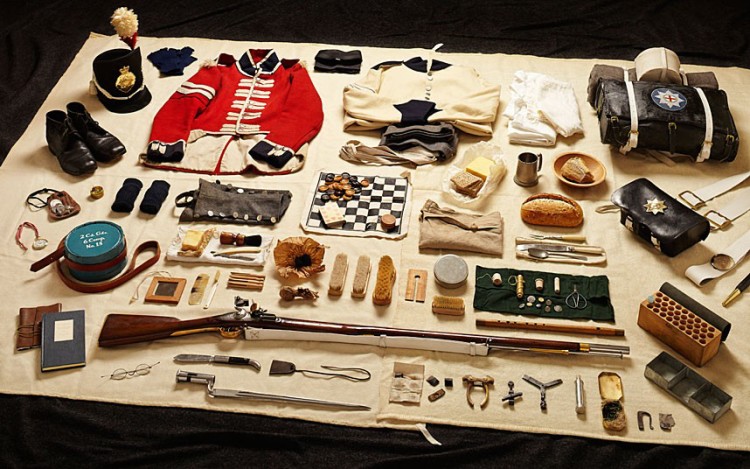Saturday, June 17, 1815: Precisely two hundred year ago today, on a cold, wet morning, Martha Deacon, nine months pregnant, “wandered with three small children through the [British] army’s bivouacs”* in the village of Genappe, very close to the Belgian hamlet of Waterloo. She was searching for her husband, Thomas Deacon, an Ensign in the 73rd Highland Battalion. Going into battle at the crossroads of Quatre-Bras, he had left her and their children with the baggage train.
When a musket ball broke his arm, “he dropped his sword and made his way to the rear in search of Martha … but though he looked past nightfall, he could not find her. At dawn, faint with loss of blood, he was put aboard one of the wagons carrying the wounded back to Brussels.”*
“Martha, clothed only in a dress of black silk covered by a shawl, kept looking for Thomas.”* Someone told her that he had been wounded. She took her children by the hand and walked the 22 miles to Brussels “through a rainstorm so fierce that the Duke of Wellington declared he had not even known its like in India.”* They walked for two days. No report is made of where they spent the nights or what they ate, or where they found shelter, if any.
Martha found a recovering Thomas in Brussels. She gave birth to a baby girl the next day — “they christened the child Waterloo Deacon.”*
I love these moments when the haze lifts and ordinary human beings, tough, resilient and vivid, step into the foreground of history and become a part of our experience — we can see Martha and Thomas making their journeys. We feel the force that drives them. They achieve individuality. Long dead, they are resurrected.
On the 18th the battle tore men apart from mid-morning until nightfall when a final bayonet charge by Scottish Highland regiments broke the French. The casualty figures are incomprehensible — 50,000 dead or wounded in an area 2 miles long by ¾ of a mile wide (one could circle the whole space at a reasonable walk in an hour.) Tens of thousands of horses dead. No story erases or softens the facts of that charnel house, not the astonishments of the defense of Hougoumont, the charge of the Scot’s Grey’s, the attacks of French Calvary on British Squares, the final assault of Napoleon’s Imperial Guard. But something in most of us wants to choose life, more life, and so I imagine this small gift of history born the day after the carnage, the additional fact of Waterloo Deacon. *from Waterloo by Bernard Cornwall
A soldier’s kit from the Waterloo campaign, 1815. MORE
A soldier found at Waterloo
